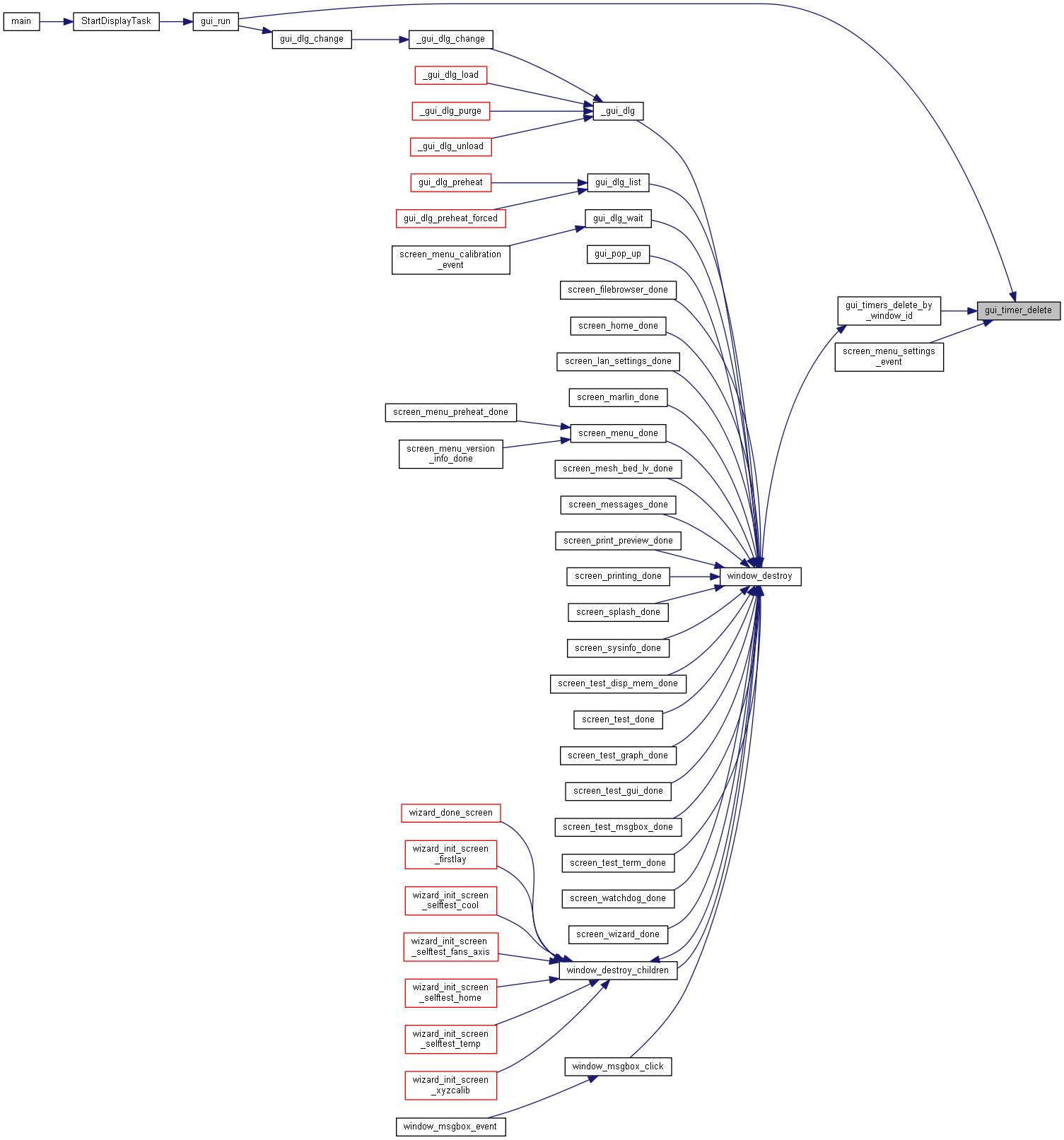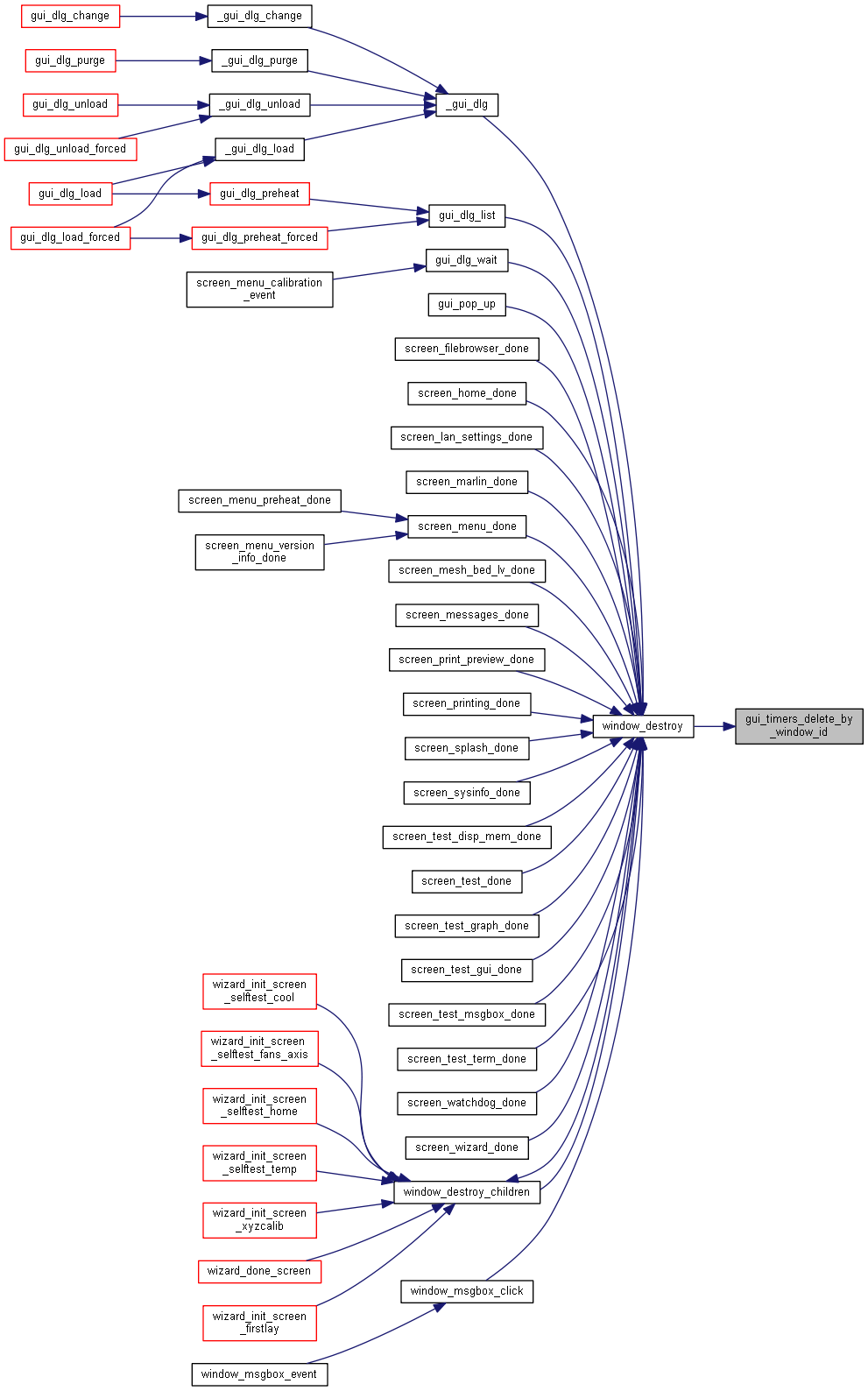#include <inttypes.h>
Go to the source code of this file.
◆ gui_timer_create_periodical()
| int8_t gui_timer_create_periodical |
( |
uint32_t |
ms, |
|
|
int16_t |
win_id |
|
) |
| |
◆ gui_timer_create_oneshot()
| int8_t gui_timer_create_oneshot |
( |
uint32_t |
ms, |
|
|
int16_t |
win_id |
|
) |
| |
◆ gui_timer_create_timeout()
| int8_t gui_timer_create_timeout |
( |
uint32_t |
ms, |
|
|
int16_t |
win_id |
|
) |
| |
◆ gui_timer_delete()
| void gui_timer_delete |
( |
int8_t |
id | ) |
|
◆ gui_timers_delete_by_window_id()
| void gui_timers_delete_by_window_id |
( |
int16_t |
win_id | ) |
|
◆ gui_timers_cycle()
| uint32_t gui_timers_cycle |
( |
void |
| ) |
|
102 uint32_t diff_min = 0xffffffff;
124 }
else if (diff_min < diff)
◆ gui_timer_reset()
| void gui_timer_reset |
( |
int8_t |
id | ) |
|
◆ gui_timer_expired()
| int8_t gui_timer_expired |
( |
int8_t |
id | ) |
|
◆ gui_get_menu_timeout_id()
| int8_t gui_get_menu_timeout_id |
( |
void |
| ) |
|










